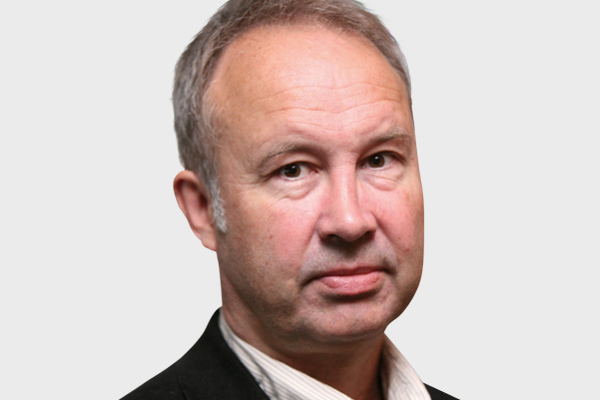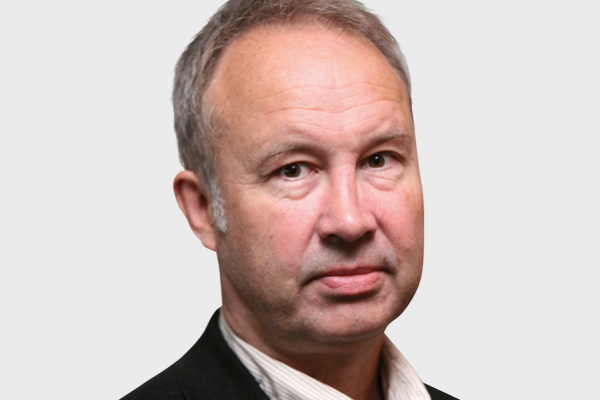You are viewing 1 of your 1 free articles
 Jules Birch
Jules BirchForget the interest rates rise, the real squeeze is happening elsewhere
Today’s interest rates rise won’t affect many homeowners, but inflation and government policies are squeezing the incomes of many, says Jules Birch
Today’s first rise in Bank of England interest rates for a decade is an important and symbolic moment, but it will make little or no immediate difference to the housing costs of millions of homeowners with a mortgage.
The increase from 0.25% to 0.5% could see average mortgage payments rise by around £15 a month but it will not apply straight away to people with fixed-rate mortgages and in any case it only restores the base rate to what was a record low between 2009 and the aftermath of the European Union referendum.
Compare that with the continuing squeeze on benefits and tax credits/Universal Credit, which the Institute for Fiscal Studies (IFS) forecasts today will contribute to increasing the percentage of children in relative poverty after housing costs from 30% now to 37% by 2022.
And contrast it with the latest overall benefit cap statistics also published today: as at August, 68,000 families were hit by the lower cap that came into effect a year ago and nearly a third of them are losing between £50 and £100 a week. The cap is now £26,000 in London and £20,000 elsewhere.
In interviews conducted by the Chartered Institute of Housing (CIH), half of families affected by the cap said they had gone without food or fuel or were in debt as a result, and a third said they had been forced to use food banks.
Needless to say, the cap hits parents hardest: of the 68,000 families, 71% are single parents, 77% have a child under five and 35% have a child under two.
The three stories illustrate the trend I highlighted in my piece on the 10th anniversary of this blog about the differential impacts of the global financial crisis and austerity on people in different housing circumstances.
The cut in what were already low interest rates by historic standards helped to prevent a slump in house prices, rescued buy-to-let landlords like the Wilsons and had gone on to inflate the prices of all assets, including homes.
That is, of course, not much consolation for recent buyers who have been forced to take out large mortgages to pay the high prices so that even a small rate hike could mean higher payments.
However, a blog by Torsten Bell of the Resolution Foundation argues that dire warnings about the impact could be overdoing it.
“There will obviously be bigger impacts if this is the first in a series of increases.”
For starters, fewer of us own our home than 10 years ago and fewer of us have a mortgage, but even within that smaller total of mortgagors more than half have a fixed-rate deal and so will not be immediately affected.
That leaves just 11% of families who are paying a variable rate mortgage and a 0.25% increase on their average loan will cost them an extra £6.40 a month.
There will obviously be bigger impacts if this is the first in a series of increases, especially once fixed-term deals expire, but on most expectations rates will still be very low by historic standards so any would-be buyers hoping for a sudden slump in prices could be waiting a while.
The impact will be significantly greater on landlords because buy-to-let mortgages are interest only, so the rate hike affects the entire repayment.
That will mean extra pressure on tenants for rent increases if they think they can get away with it at time when their Local Housing Allowance is frozen – and it is hard to remember many rent reductions when interest rates were cut.
More worryingly, rates will also increase for people in other forms of debt who are already struggling to pay their mortgage or their rent.
That will come on top of the squeeze on benefits.
The IFS analysis for the Joseph Rowntree Foundation shows that after an initial period following the financial crisis in which low-income families were relatively protected, they have faced a series of cuts culminating in the benefit freeze.
The impact on families with children will only intensify by the end of this parliament as the freeze continues and the two-child limit starts to bite.
“Little wonder that the pressure is growing on the chancellor to do something about the benefit freeze in the Budget later this month.”
The interest rate hike was driven by the rise in inflation to 3%, which was itself triggered by the fall in the value of the pound following the Brexit vote.
However, that rise in inflation also increases the pressure on families who have their benefits frozen or capped.
Little wonder that the pressure is growing on the chancellor to do something about the benefit freeze in the Budget later this month or face more increases in homelessness as families are left unable to make up rising shortfalls between their benefit and their rent.
While Philip Hammond faces a whole series of competing demands, the surge in inflation means that he is saving more than was forecast from the freeze.
However, if he does allow benefits to rise again, that will only see more households capped unless the £23,000 and £20,000 limits are also raised. The CIH is calling for the lower cap to be scrapped.
While the increase in interest rates dominates today’s news, the real squeeze is happening elsewhere.
Jules Birch, award-winning blogger










